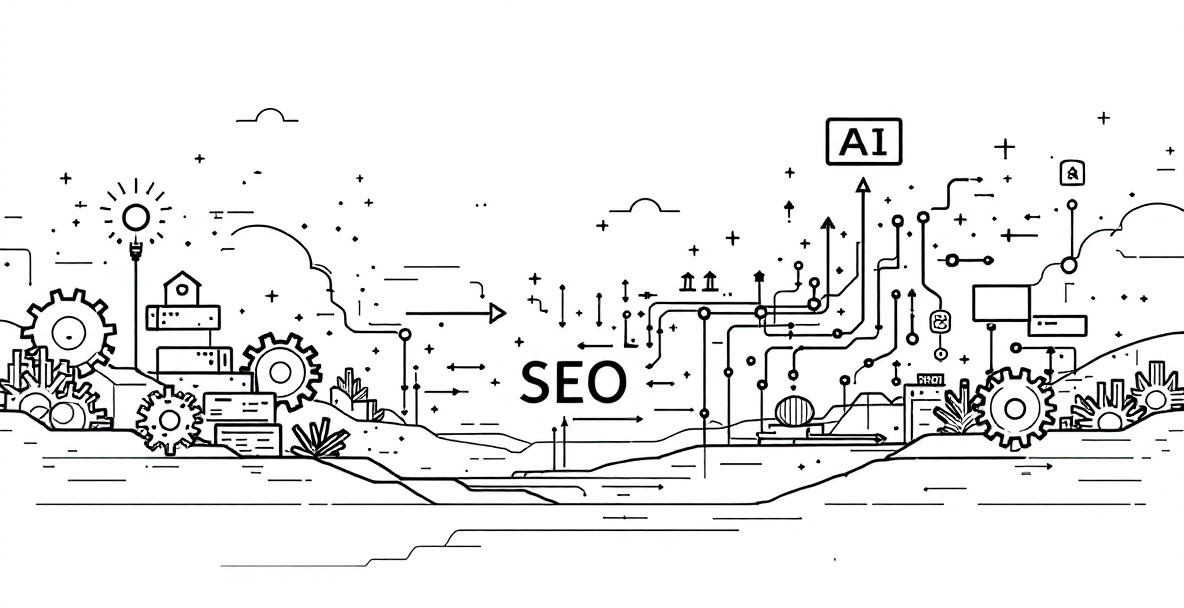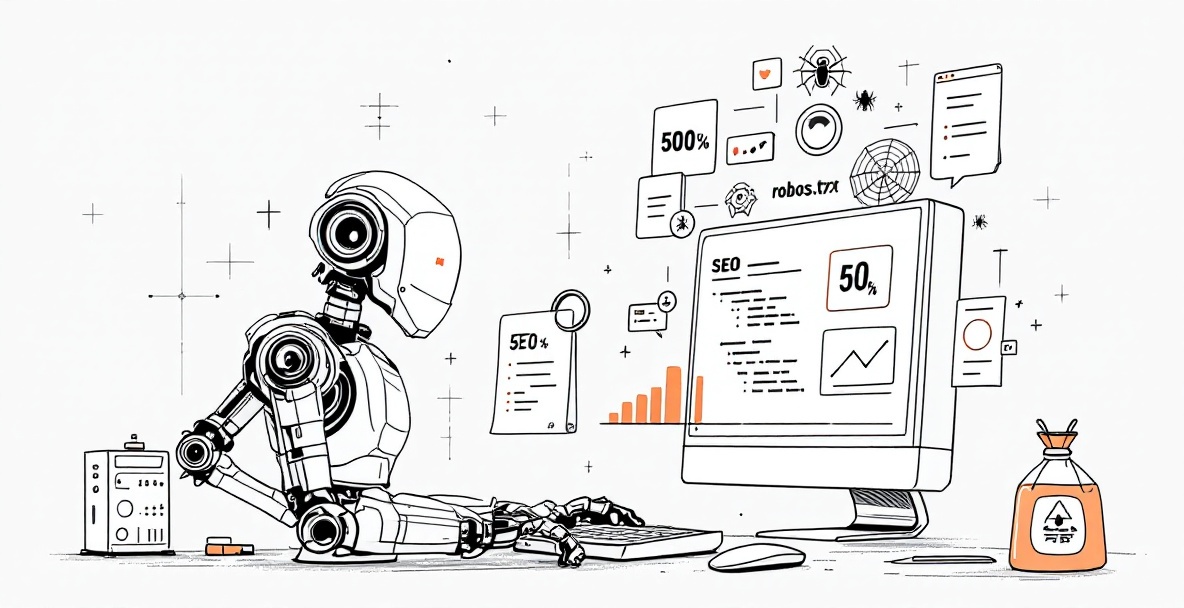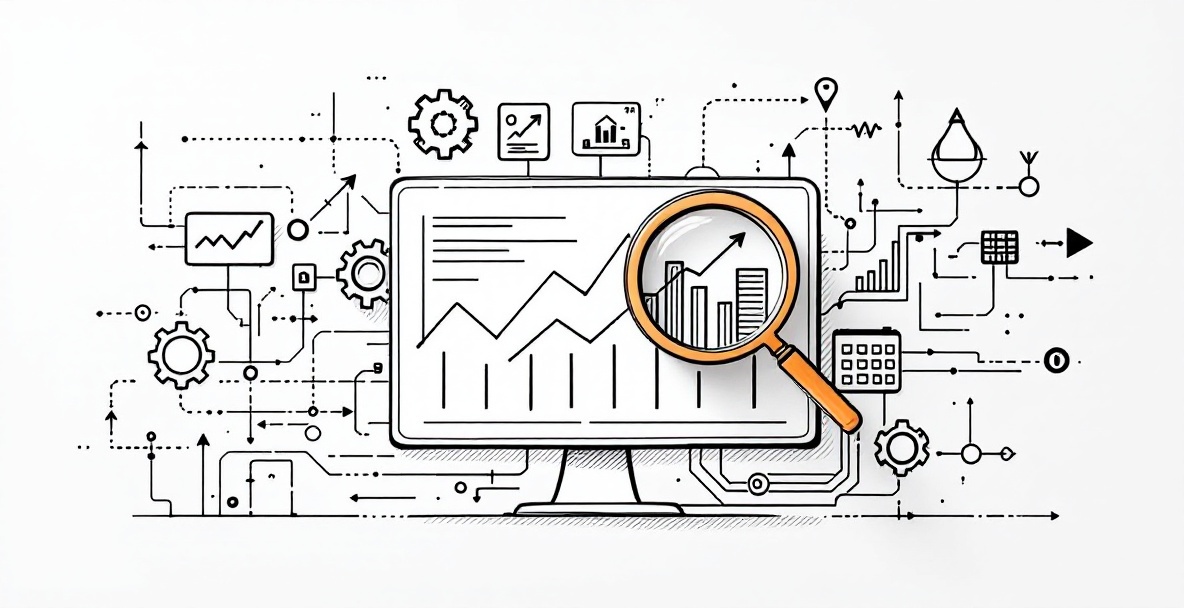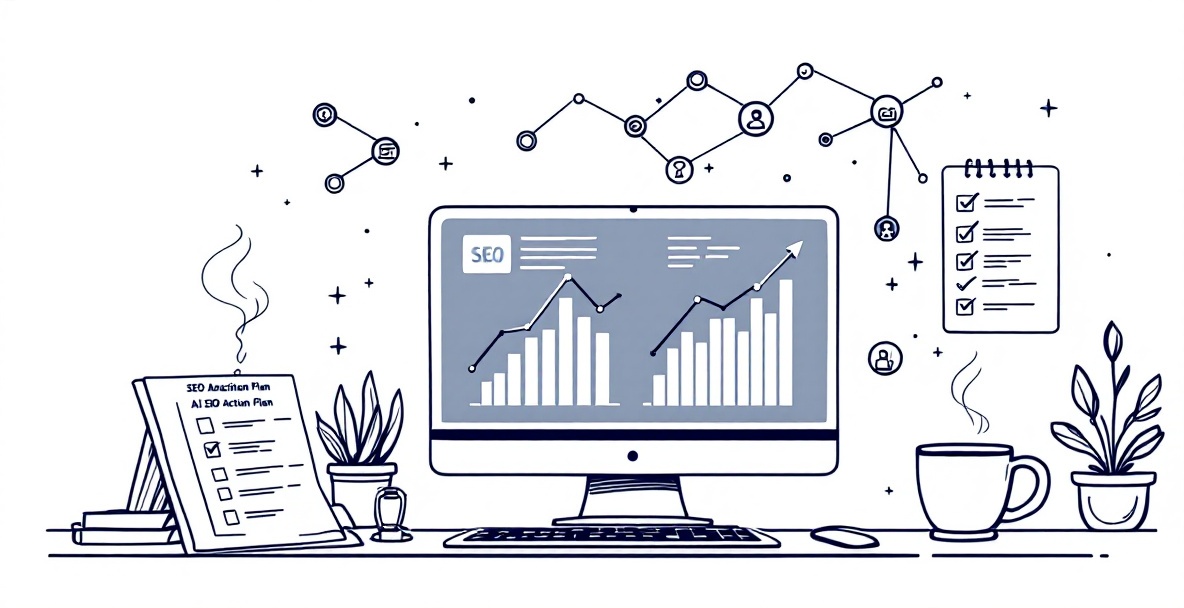The quest for organic traffic has never been more competitive or complex. As search algorithms evolve and content saturation reaches unprecedented levels, businesses and content creators face mounting pressure to stand out. Traditional SEO tactics that once delivered reliable results now often fall short against sophisticated AI-powered competitors. That’s why innovative tools that harness artificial intelligence have become indispensable for those serious about driving sustainable organic growth in today’s digital ecosystem.
The AI Revolution in SEO: Why Traditional Methods Aren’t Enough Anymore

The SEO landscape has transformed dramatically over the past few years. What worked in 2020 barely moves the needle today, leaving many content creators and businesses struggling to maintain visibility. This shift isn’t merely incremental—it represents a fundamental change in how search engines evaluate and rank content.
The Growing Challenge of Organic Traffic
Securing organic traffic has become increasingly difficult as competition intensifies across virtually every niche. Content volume has exploded, with over 7 million blog posts published daily, creating unprecedented noise that your content must cut through. Meanwhile, search engines have grown remarkably sophisticated, employing advanced natural language processing to evaluate content quality, relevance, and user intent with near-human precision.
Traditional SEO methods focused primarily on keyword density and backlink profiles are now insufficient. Modern algorithms prioritize comprehensive content that demonstrates expertise, authoritativeness, and trustworthiness. They evaluate contextual relevance, semantic relationships between concepts, and the overall user experience your content delivers.
The AI Advantage
This is where AI creates a decisive competitive edge. Artificial intelligence tools can analyze and interpret massive datasets to uncover patterns and insights beyond human capacity. They can process thousands of ranking signals simultaneously, identify content gaps, and predict performance outcomes with remarkable accuracy.
AI doesn’t replace human creativity and strategic thinking—it amplifies them. As highlighted in a recent Forbes Agency Council article, AI tools won’t replace hands-on SEO work anytime soon. By automating routine aspects of content optimization and providing data-driven insights, AI tools free content creators to focus on high-value activities like building authentic connections with their audience and developing truly innovative content strategies.
Leveraging AI Content Optimization Tools for Better Rankings

Creating content that resonates with both search engines and readers requires balancing technical optimization with genuine value. AI content optimization tools excel at helping you achieve this balance efficiently.
Content Analysis and Enhancement
Modern AI tools can analyze existing content to identify strengths and weaknesses that might escape human detection. They evaluate factors like readability, topical depth, semantic structure, and engagement potential, providing actionable recommendations for improvement.
At SeoFlow, we’ve developed advanced content analysis capabilities that go beyond basic metrics. Our platform examines how well your content addresses user intent by evaluating completeness of topic coverage compared to top-ranking pages. This enables you to fill critical gaps that might be preventing your content from reaching its ranking potential.
The most effective content analysis tools don’t just identify problems—they suggest specific solutions. For example, when our system detects that your content lacks depth on a particular subtopic, it doesn’t just flag the issue; it provides recommendations for additional points to cover and potential resources to reference.
Keyword Research and Implementation
AI has revolutionized keyword research by moving beyond simple volume metrics to consider intent clusters, competitive difficulty, and ranking potential. According to Moz’s comprehensive analysis of AI SEO tools, today’s AI-powered keyword tools analyze search patterns to identify emerging opportunities before they become competitive.
The most valuable AI keyword tools identify not just primary terms but entire semantic clusters of related concepts that should be incorporated for comprehensive coverage. This approach aligns perfectly with how modern search engines evaluate content relevance.
Our platform at SeoFlow automatically identifies optimal keyword opportunities based on your specific content niche, domain authority, and competitive landscape. It then guides implementation by recommending ideal keyword placement, density, and variation to maintain natural readability while maximizing ranking potential.
Semantic SEO Optimization
Search engines now employ sophisticated natural language processing to understand content meaning and contextual relationships between concepts. AI tools excel at optimizing for this semantic dimension of SEO.
Effective semantic optimization includes identifying and incorporating related entities, concepts, and terminology that search engines associate with your primary topic. As explored in Moz’s guide to AI for SEO and content marketing, AI tools can map these relationships and ensure your content demonstrates the topical authority search engines favor.
Our AI engine at SeoFlow analyzes top-performing content in your niche to identify the precise semantic network that signals expertise to search engines. It then helps you incorporate these elements naturally throughout your content, enhancing relevance without sacrificing readability or authenticity.
Automating Technical SEO with AI Tools

While compelling content is crucial, technical SEO fundamentals remain essential for high rankings. AI tools can identify and resolve technical issues more efficiently than manual processes.
Site Structure Optimization
Site architecture directly impacts how search engines discover, understand, and rank your content. AI tools can analyze your current structure to identify optimization opportunities for both user experience and search visibility.
These tools evaluate factors like internal linking patterns, page hierarchy, and content clustering to recommend structural improvements. By implementing AI-suggested changes to site structure, many websites see significant gains in both crawlability and topical authority.
At SeoFlow, our platform automatically generates optimal internal linking recommendations based on semantic relationships between your content pieces. This creates natural content clusters that signal topical authority to search engines while improving user navigation and engagement metrics.
Performance Monitoring and Fixes
Technical SEO isn’t a one-time effort—it requires ongoing monitoring and maintenance. AI tools excel at continuously evaluating site performance and alerting you to emerging issues before they impact rankings.
AI-powered monitoring tools can detect subtle changes in site speed, mobile responsiveness, and crawl efficiency that might escape manual audits. They can also prioritize issues based on potential ranking impact, helping you focus resources where they’ll generate the greatest returns.
Our platform provides automated monitoring of critical technical factors, with real-time alerts when potential issues arise. More importantly, it doesn’t just identify problems—it suggests specific solutions tailored to your site’s unique characteristics and technology stack.
AI-Powered Content Strategy and Planning

Beyond optimizing individual pieces of content, AI tools can transform your entire content strategy by identifying opportunities and guiding resource allocation.
Content Gap Analysis
AI excels at analyzing your content ecosystem against competitive benchmarks to identify critical coverage gaps. These gaps often represent valuable ranking opportunities where relatively modest effort can yield significant traffic gains.
Advanced content gap tools don’t merely identify missing topics—they evaluate the potential traffic value and competitive difficulty of each opportunity. This allows you to prioritize content development where it will generate the greatest returns.
At SeoFlow, our platform continuously scans your industry landscape to identify emerging topics and questions your audience is asking. It then evaluates your existing content coverage against these opportunities, helping you develop a strategic content roadmap focused on high-value topics your competitors may have overlooked.
Competitor Analysis and Benchmarking
AI tools can systematically analyze competitor content strategies to reveal patterns and opportunities traditional research might miss. They can identify which topics generate the most engagement, which content types perform best, and which distribution channels drive meaningful traffic.
These insights allow you to benchmark your performance against industry leaders and adapt successful elements of their approach while avoiding their missteps. The most valuable competitor analysis tools provide actionable recommendations rather than just data.
Our platform at SeoFlow provides comprehensive competitor content analysis, including topic coverage, content depth, publishing frequency, and performance metrics. More importantly, it translates these insights into specific recommendations for your content strategy, helping you focus on opportunities with the highest potential return.
Predictive Analytics and Performance Optimization
The most advanced AI SEO tools don’t just analyze past performance—they predict future outcomes and optimize accordingly.
Traffic Prediction Models
AI can analyze historical performance data alongside countless ranking signals to predict how specific content optimizations will likely impact traffic. This predictive capability helps you allocate resources more efficiently by focusing on changes with the highest probability of meaningful results.
The most sophisticated prediction models consider variables like seasonal trends, competitive dynamics, and algorithm updates to generate increasingly accurate forecasts. This foresight enables proactive rather than reactive content strategies.
At SeoFlow, our AI models evaluate potential content topics based on projected traffic potential, competitive dynamics, and alignment with your audience interests. This allows you to focus content creation efforts where they’re most likely to generate sustainable traffic growth.
Real-time Optimization
Modern AI tools enable continuous content optimization based on real-time performance data. Rather than waiting for quarterly content audits, these systems can identify optimization opportunities as they emerge and suggest immediate adjustments.
This adaptive approach helps you capitalize on trending topics, adjust to algorithm updates, and address performance issues before they significantly impact rankings. The agility this provides creates substantial advantages in competitive niches.
Our platform at SeoFlow continuously monitors content performance and automatically suggests adjustments based on engagement metrics, search trends, and competitive movements. This ensures your content stays relevant and optimized even as search landscapes evolve.
Getting Started with AI SEO Tools: Your Action Plan
Implementing AI tools for SEO requires a thoughtful approach to maximize returns while avoiding common pitfalls.
Tool Selection Guide
When evaluating AI SEO tools, prioritize solutions that align with your specific challenges and objectives rather than those offering the most features. Consider factors like ease of integration with existing workflows, learning curve, and support resources available.
Look for tools with transparent methodologies and proven track records rather than black-box solutions making unrealistic promises. The most valuable AI tools explain not just what to change but why those changes matter, helping you build internal expertise over time.
At SeoFlow, we’ve designed our platform to provide both immediate value and long-term knowledge development. Our AI recommendations include educational context that helps users understand the underlying principles, creating sustainable capability rather than dependency.
Implementation Roadmap
Successful implementation of AI SEO tools typically follows a phased approach:
Start with a baseline audit to identify your current performance metrics and most pressing opportunities. This creates clear benchmarks against which to measure future progress and helps prioritize initial efforts.
Begin with one high-impact content area rather than attempting widespread changes simultaneously. This focused approach allows you to refine your process and demonstrate value before scaling.
Integrate AI recommendations into existing workflows gradually, allowing team members to adapt and provide feedback. The most successful implementations balance AI guidance with human judgment and brand expertise.
At SeoFlow, we guide customers through this implementation process with personalized onboarding and ongoing support. Our platform integrates seamlessly with existing content workflows, reducing friction while maximizing adoption and impact.
The organic traffic landscape continues to evolve at unprecedented speed, but AI tools provide the insights and efficiency needed to stay ahead. By strategically implementing these proven approaches, you can transform your SEO results while freeing valuable resources for creative and strategic priorities.
Ready to transform your organic traffic results with AI-powered optimization? Try SeoFlow today and discover how our platform can help you create better content, rank higher, and drive sustainable traffic growth while saving countless hours of manual optimization work.




